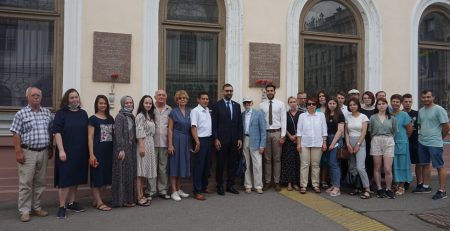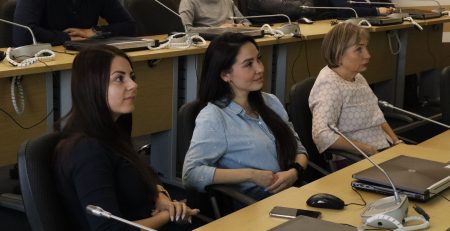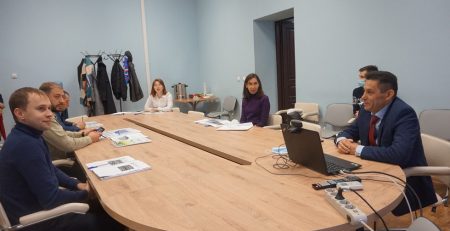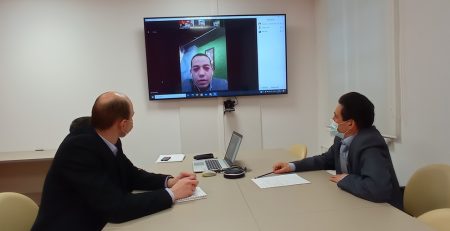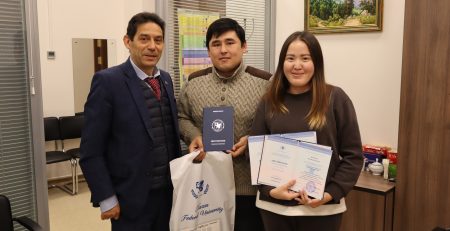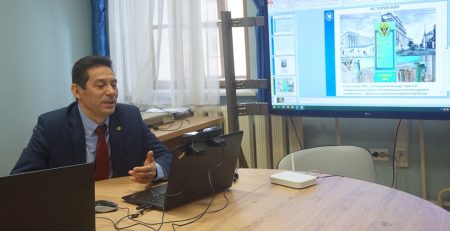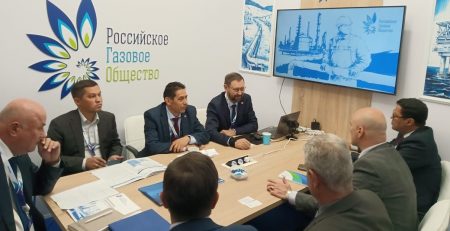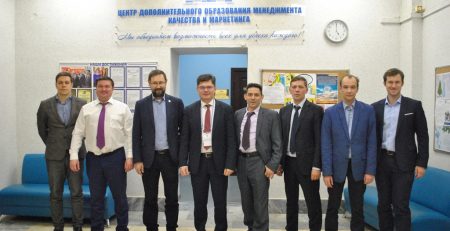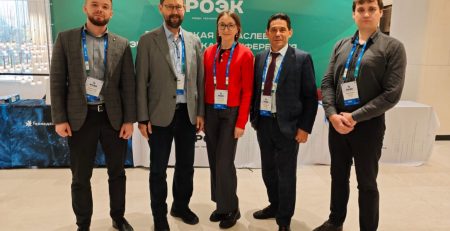Cooperation agreement signed by Gazprom and the Republic of Tatarstan at the 14th Saint Petersburg International Gas Forum
The document was signed by Rustam Minnikhanov, Rais of the Republic of Tatarstan, and Alexey Miller, Chairman of the Management Board of PJSC Gazprom.
The company will expand its cooperation with scientific, educational, and industrial organizations in Tatarstan. Joint projects and programs are planned in research and education, as well as the development and implementation of advanced technologies developed with the participation of scientific and industrial organizations of the Republic of Tatarstan.
“Within the framework of this document, Kazan Federal University will expand its cooperation with Gazprom and its subsidiaries,” said Vice-Rector for Earth Sciences Danis Nurgaliev, who was present at the signing. “Kazan Federal University is currently conducting research in the exploration of gas fields in Eastern Siberia, developing geochemical research technologies to monitor the development of oil and gas fields and assess the oil and gas potential of fields under development and new territories.”
The Vice-Rector also noted that Kazan University plans to improve the qualifications of Gazprom employees at the CdoGEO Center for Advanced Training in areas related to metrology, geophysical exploration, and natural gas production.
The signing took place following the plenary session Gas Market 2025–2035: New Shapes in the Context of Transformation, which was also attended by KFU representatives. The session discussed development trends in the global natural gas market, as well as prospects for international cooperation in the changing economic and geopolitical environment.
Speakers at the key forum event included: Russian Energy Minister Sergey Tsivilyov, Alexey Miller, First Deputy Prime Minister of the Republic of Kazakhstan Roman Sklyar, Deputy Prime Minister of the Republic of Belarus Viktor Karankevich, Federal Minister of Oil, Gas, and Water Resources of the Islamic Republic of Pakistan Ali Pervez Malik, Minister of Energy and Natural Resources of the Republic of Turkey Alparslan Bayraktar, and Director of the Information and Press Department of the Russian Ministry of Foreign Affairs Maria Zakharova.
Talking about the gas market, the speakers touched on a plethora of other topics – from economic sustainability to education and upbringing.
Sergey Tsivilyov, in particular, noted that training for the energy industry begins in schools and continues in universities and colleges.
“The program begins in school, with engineering classes, where the foundation for future professionals is laid,” he explained.
One of the factors driving the rapid development of the gas sector today is artificial intelligence. However, with the development of AI, the demand for energy resources will increase, Mr Miller stated. He also assured that Russians need not worry – there will be no problems with hydrocarbons in our country – “the future will be bright and warm.”
“The Russian Arctic contains 87 trillion cubic meters of gas – and that’s just in our territory. For us, there is no problem of a shortage of traditional fossil fuel energy sources,” stated the head of the gas powerhouse.
On the second day of the forum, Vladislav Sudakov, Deputy Director for Marketing at the Gazpromneft-KFU Scientific and Educational Center, held a meeting with representatives of Gazprom Neft to outline avenues for collaboration with the company on projects under the Priority 2030 program.
The forum also included business meetings between Ildus Chukmarov, Deputy Director for Continuing Education and Industrial Partnerships of IGPT, and representatives of Gazprom, the Russian Gas Society, and Arthur Nwabufo, CEO of ARTANA TECH (Nigeria).
“During our conversation with Mr Nwabufo, we discussed a possible visit by the Nigerian Ambassador to KFU to establish cooperation in scientific and educational areas. Nigeria has significant oil reserves and numerous oil and gas companies with which we would like to collaborate, both in terms of training and scientific research. Furthermore, we plan to enhance the skills of workers in the country’s oil and gas industry,” said Dr Chukmarov. “I would like to highlight the meeting attended by Nikolay Isakov, Vice President and Executive Director of the Russian Gas Society; Alik Vildanov, Deputy Head of the Society’s Center for Project Activities and Technologies; and two Gazprom representatives — Alexander Shagov, Head of the HR Department; and Andrey Frolkov, Deputy Head of the Department. We discussed the development of our cooperation. I would like to emphasize that our CdoGEO has been providing advanced training to Gazprom employees for several years now.”


